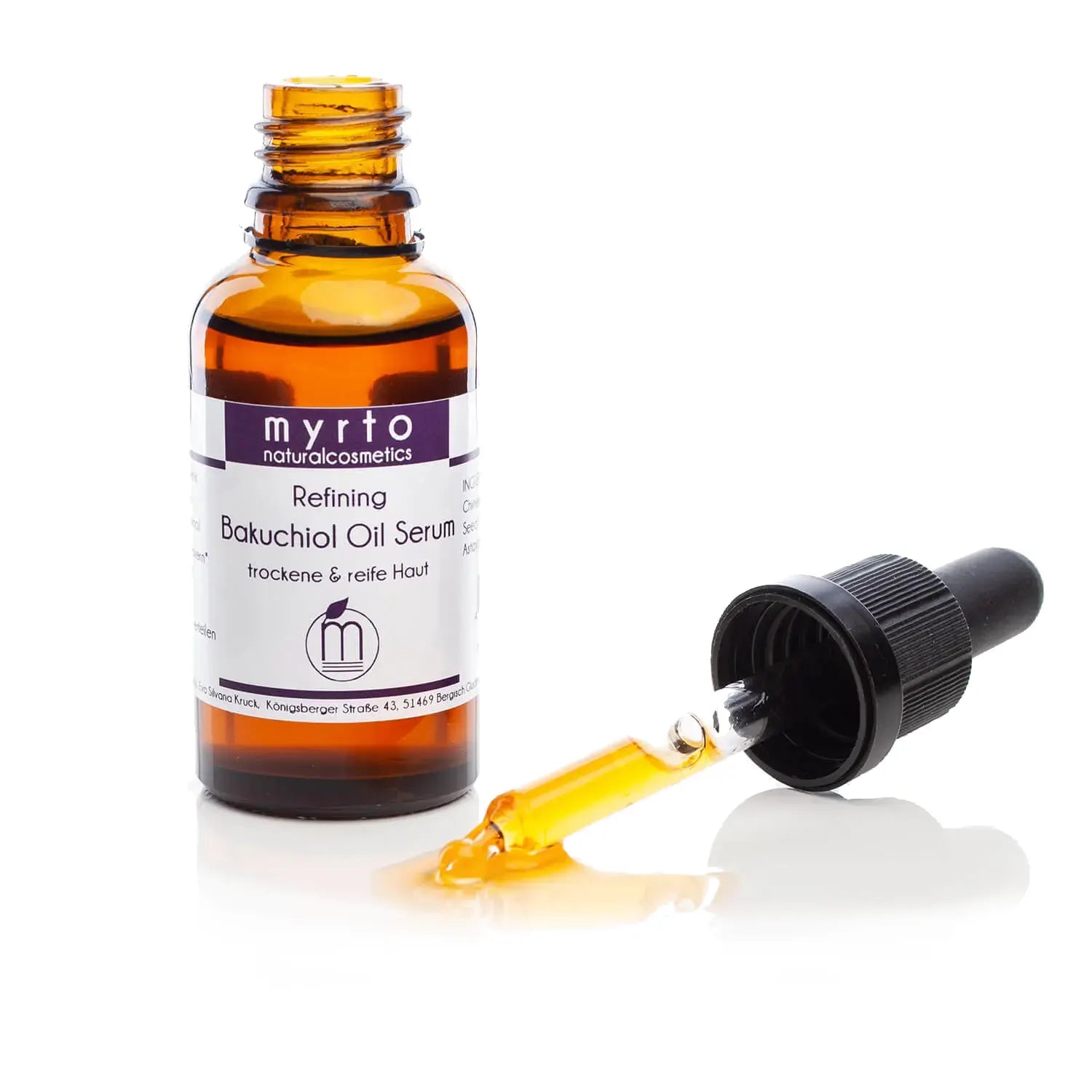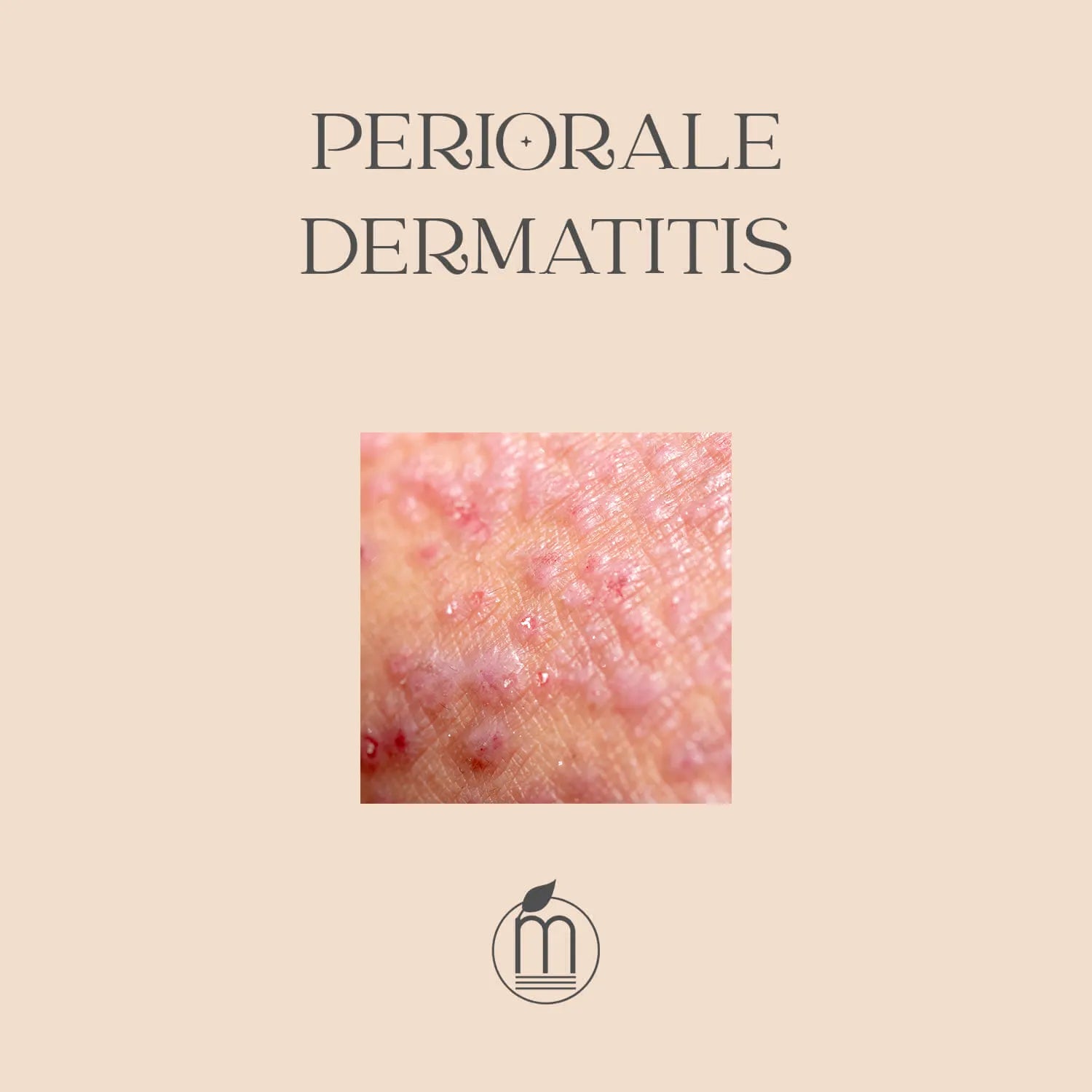
Bakuchiol versus Retinol in Facial Care
In this article, you will learn what Bakuchiol is, how it works, what the difference is to retinol and why Bakuchiol is so interesting as a herbal alternative to retinol.
What is retinol and how does it work?
Retinol, also known as vitamin A, is one of the retinoids. Natural retinol is found in many foods as provitamin A. Fish, eggs, tomatoes, carrots and apricots, for example, contain plenty of retinol.
Synthetically produced retinol is used in cosmetics, preferably in active ingredient serums or face creams. The diverse effects of retinol have been proven in numerous studies:
- Retinol promotes the formation of new skin cells (corneocytes) and improves the regeneration of damaged skin.
- Retinol stimulates the formation of collagen fibers for more elastic skin.
- Since retinol regulates cell functions, it can be helpful for acne and counteract blemished skin.
- Retinol has the ability to lighten pigment spots and smooth the skin.
However, the powerful ingredient retinol also has serious disadvantages in the form of side effects.
side effects of retinol
- According to a 2019 British comparative study in the British Journal of Dermatology , irritated, reddened and flaky skin was frequently observed with cosmetics containing retinol, while this hardly ever occurred with bakuchiol.
- The BfR (Federal Institute for Risk Assessment) therefore warns of the risks of an overdose of retinol, which can cause headaches, accumulate in the body's fatty tissue and provoke liver damage. A strict legal limit on the intake of retinol via cosmetics is therefore recommended.
- Retinol in higher doses can cause redness, flaking, dry, cracked skin, chapped lips and thinning hair, even hair loss .
- The side effects of retinol also include fertility problems , as found in animal studies.
- Retinol is potentially harmful to the fetus during pregnancy and can cause severe malformations.
- According to the BfA, women after menopause have an increased risk of developing osteoporosis (bone loss) when using cosmetics containing retinol.
- Retinol makes the skin hypersensitive to UV radiation and increases the risk of sunburn. Therefore, retinol is only suitable for night care. During the day, strong UV protection is also necessary.
What is Bakuchiol?
Bakuchiol (pronounced "Ba-kutschi-ohl") is a highly effective plant-based anti-wrinkle ingredient that is less well-known in Europe. Hyped as an anti-aging trend, Bakuchiol is becoming increasingly important and has now established itself as a skin-friendly alternative to retinol due to its diverse positive effects.
In Indian Ayurveda and traditional Chinese medicine, Bakuchiol has been used for centuries as a remedy for numerous skin problems such as inflammation, pimples and blemishes, acne, wrinkles, pigment disorders and psoriasis. Bakuchiol is also becoming increasingly popular in modern natural cosmetics - and for good reason: the purely vegan natural substance improves the complexion, works against pimples and blemishes, slows down skin aging, stimulates the formation of collagen fibers and tightens the tissue. Bakuchiol helps to build a healthy skin structure. Bakuchiol is considered a natural and, above all, much more skin-friendly alternative to retinol.
How is Bakuchiol produced?
Bakuchiol is obtained by cold pressing the seeds and leaves of the Babchi plant (botanical name: Psoralea Corylifolia), which is native to India, Sri Lanka and China. The purple-flowering herb, also known as "resin clover" in German, grows up to 1 meter tall. It has a characteristic, pleasant scent, grows mainly in dry areas and belongs to the legume family. The small black seeds of the Babchi plant are harvested up to 4 times a year in the winter months between December and March.
Bakuchiol and Retinol in Comparison
Chemically speaking, synthetically produced retinol and plant-based bakuchiol are two completely different substances with completely different molecular structures. However, both active ingredients are very similar in their effects, as scientific studies confirm. Both reduce wrinkles and pigment spots, are rich in antioxidants, stimulate collagen production and ensure an even complexion. The big difference is the risk of overdosing with retinol, which can have unpleasant side effects.
The effects of Bakuchiol at a glance
Given the serious disadvantages of retinol, we have chosen bakuchiol as a gentle and safe alternative with comparable effectiveness. Especially if you have sensitive and dry skin, we recommend bakuchiol, which is clearly better tolerated. The most important advantages of this highly effective natural ingredient for your skin are:
- smoothes and tightens, stimulates collagen formation
- is light-stable, therefore also suitable for use during the day
- improves elasticity and firmness of the skin
- lightens hyperpigmentation, promotes an even complexion
- has a cell-protective effect against free radicals
- improves the natural skin shine (glow)
- has an antimicrobial effect against impure skin, pimples and acne
- also suitable during pregnancy and breastfeeding
- suitable for all skin types, especially for sensitive, dry and sensitive combination skin
Conclusion: Bakuchiol versus Retinol in facial care
Bakuchiol is not only much more skin-friendly than retinol, but also easier to use. The mild natural ingredient can be combined excellently as a booster with stabilized vitamin C (e.g. ascorbyl glucoside) or vitamin B3 (niacinamide) without irritating the skin. The concentration of bakuchiol when used on sensitive skin should not be more than 0.5-1%. Since bakuchiol is light-stable, it does not make the skin hypersensitive to UV sunlight - unlike retinol. Bakuchiol is therefore not only suitable for the evening beauty routine. You can also use bakuchiol during the day to benefit from its antioxidant properties and its ability to fight free radicals.
To achieve optimal results, it is important that you use Bakuchiol regularly for as long as possible.
Bakuchiol in myrto products
At myrto you will find 2 facial serums with Bakuchiol:
The Refining Bakuchiol Oil Serum with 1% Bakuchiol - gently but powerfully counteracts pimples, impurities and decreasing skin tension with proven effectiveness. The serum is based on plant-based squalane, which is a component of the skin's own protective barrier and is quickly absorbed into the skin without leaving any residue. In addition, there is organic grape seed oil to combat calluses, jojoba oil for firmer connective tissue and astaxanthin for antioxidant cell protection.
In addition to 0.5% Bakuchiol, the Brightening Vitamin Serum contains an effective combination of the important beauty vitamins Niacinamide (Vitamin B3), Tocopherol (Vitamin E) and Ascorbyl Glucoside (Vitamin C) in moderate doses for sensitive skin. This gentle vitamin booster ensures even, well-hydrated, youthfully fresh skin with improved elasticity and a natural glow.





